University of Exeter Press
William Morris’s Socialism and Politics
Claiming a Decent Life
Couldn't load pickup availability

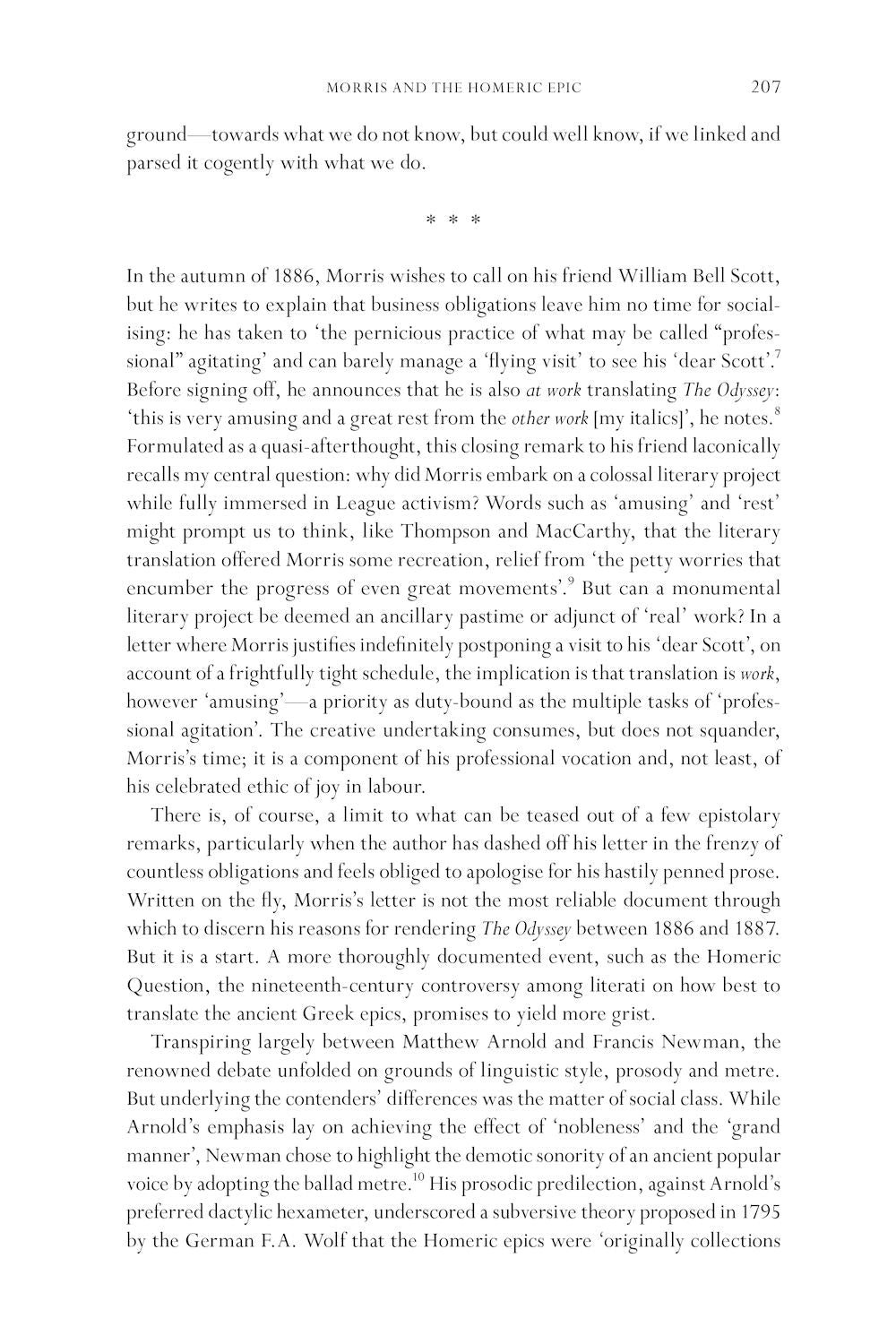
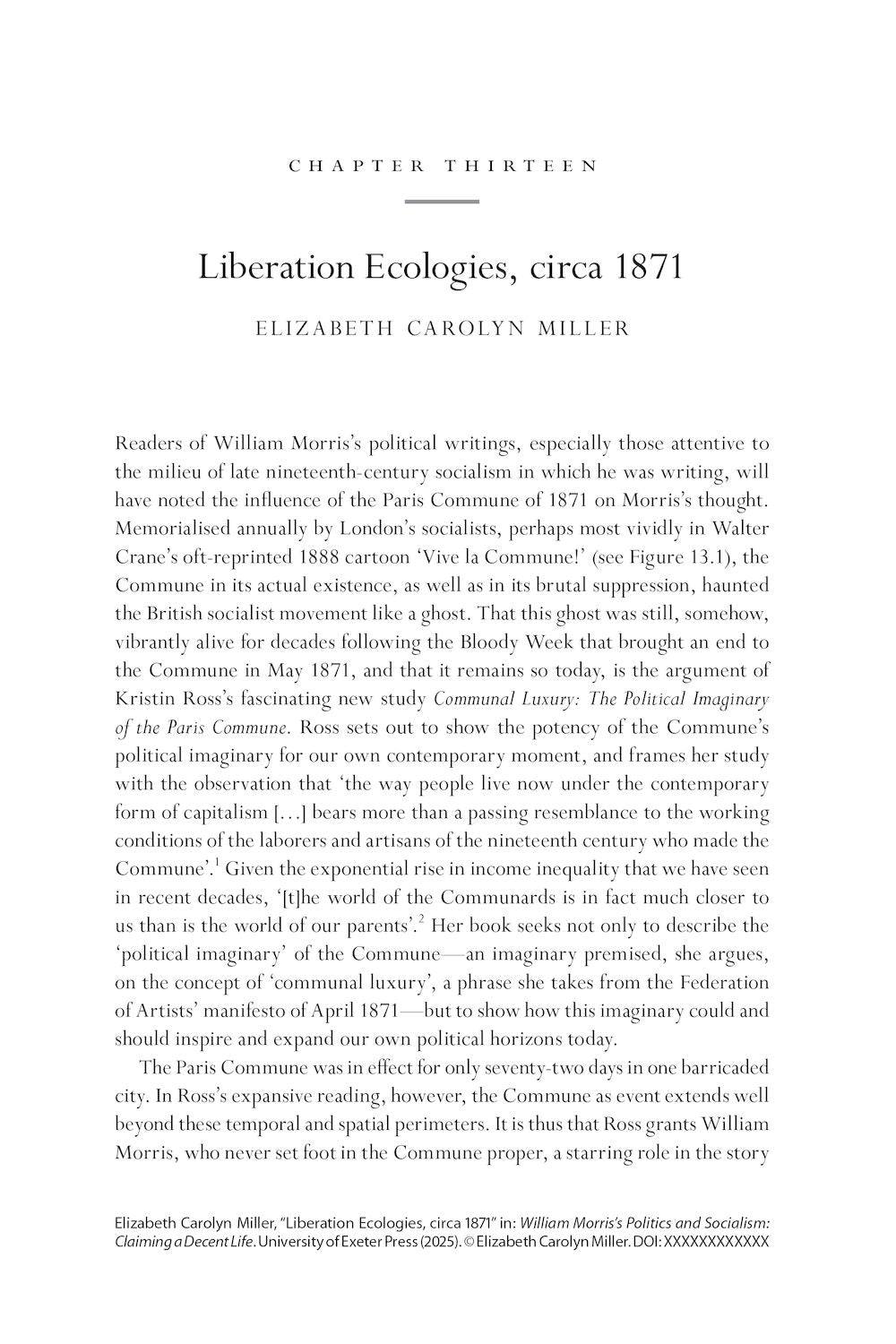
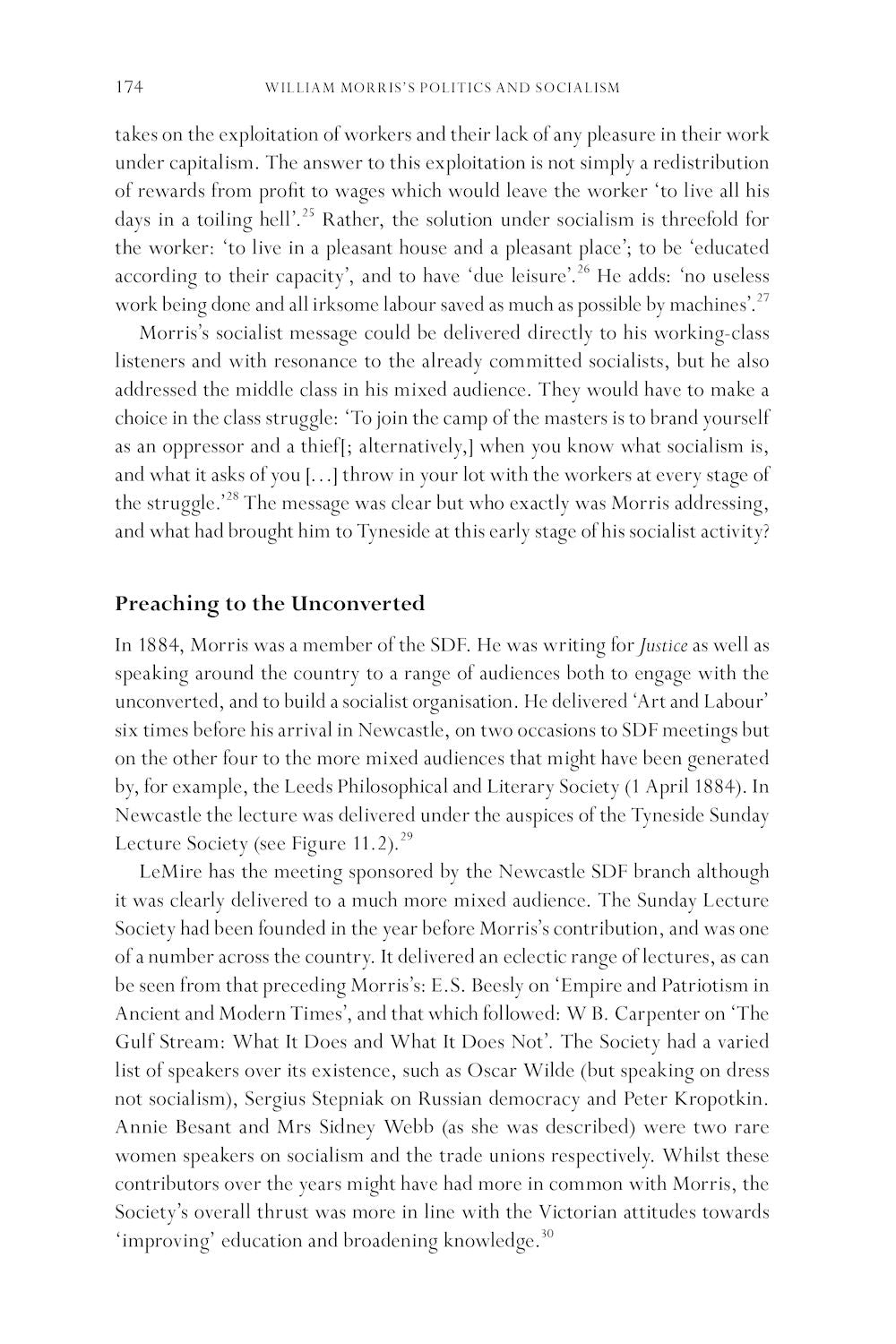
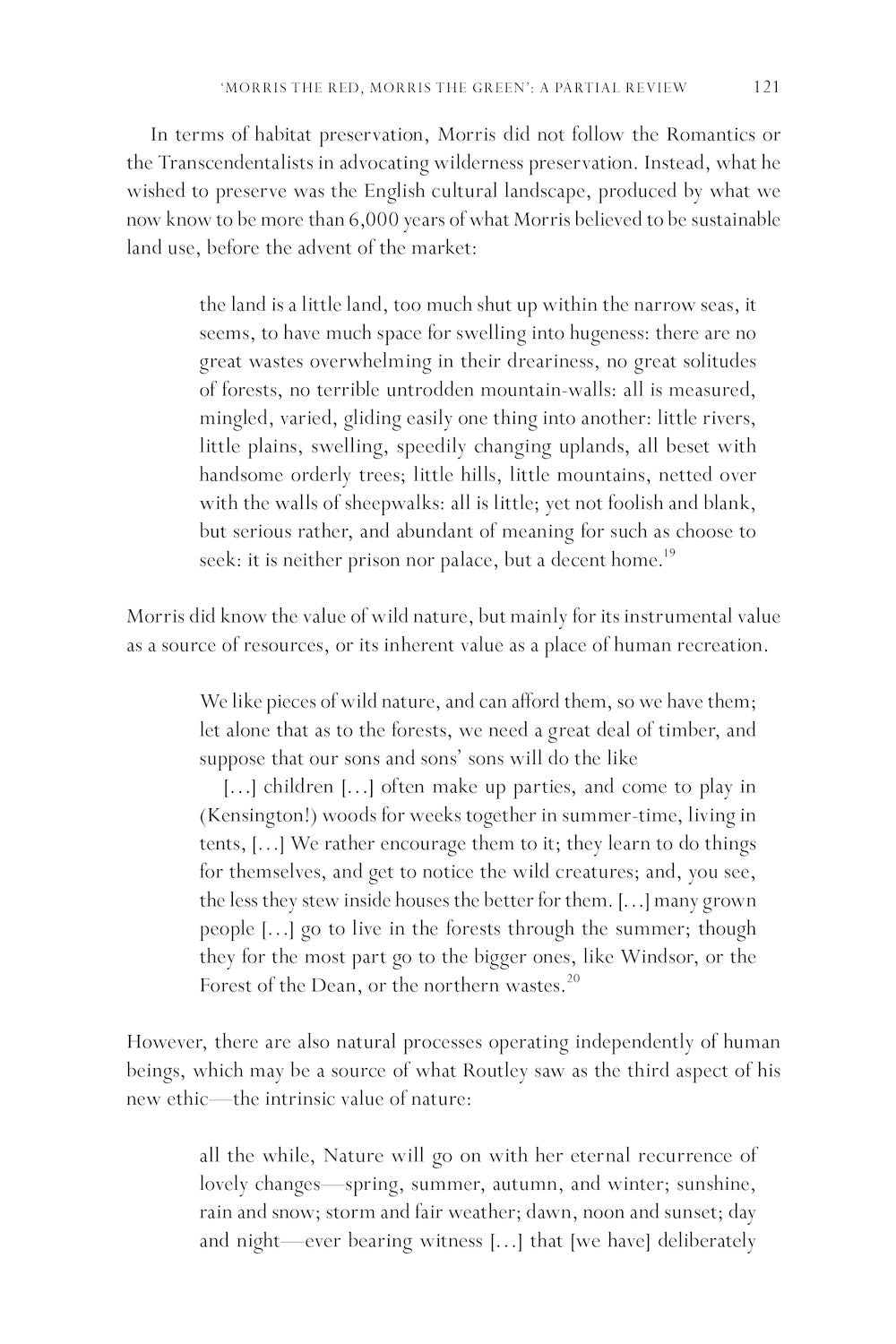
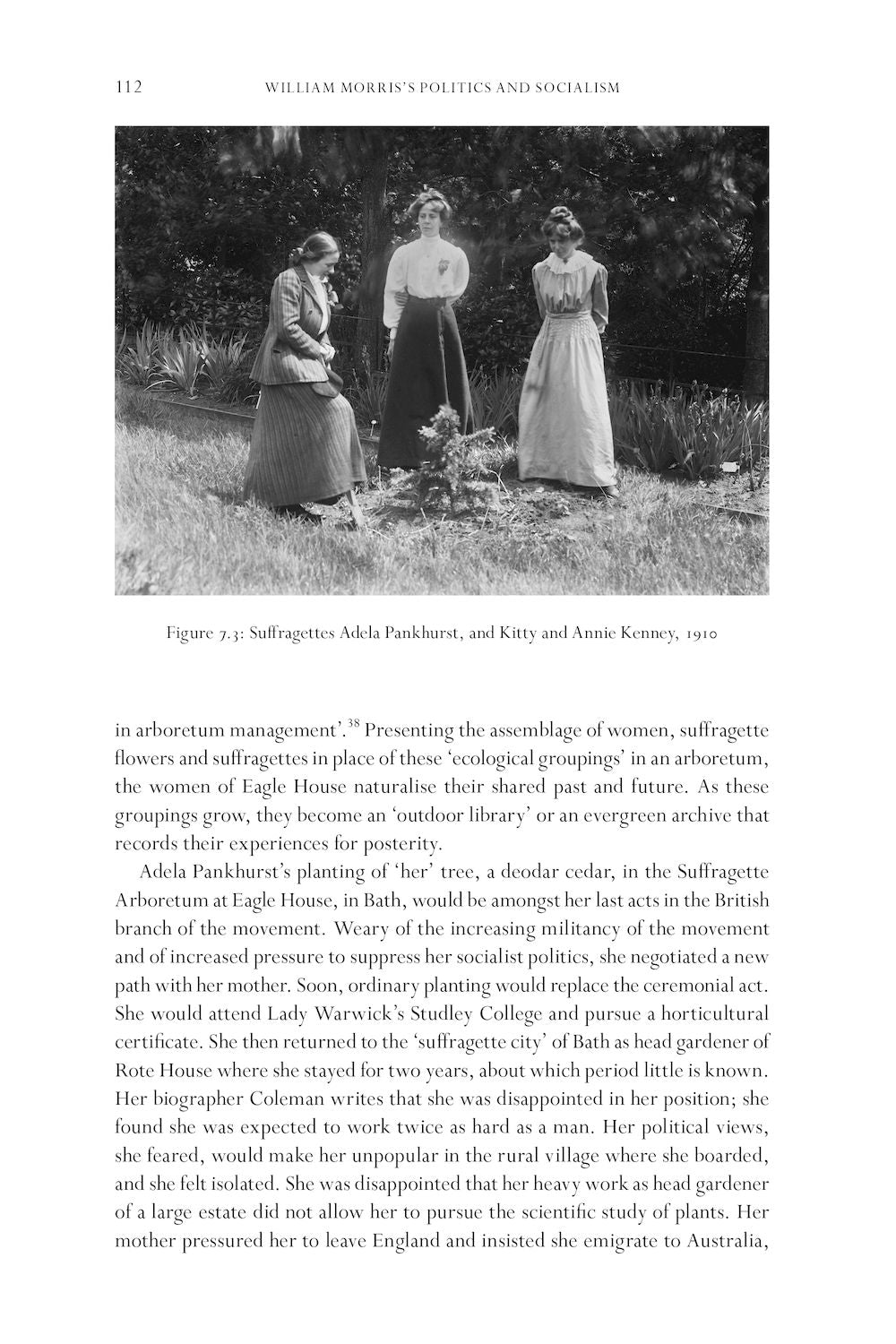
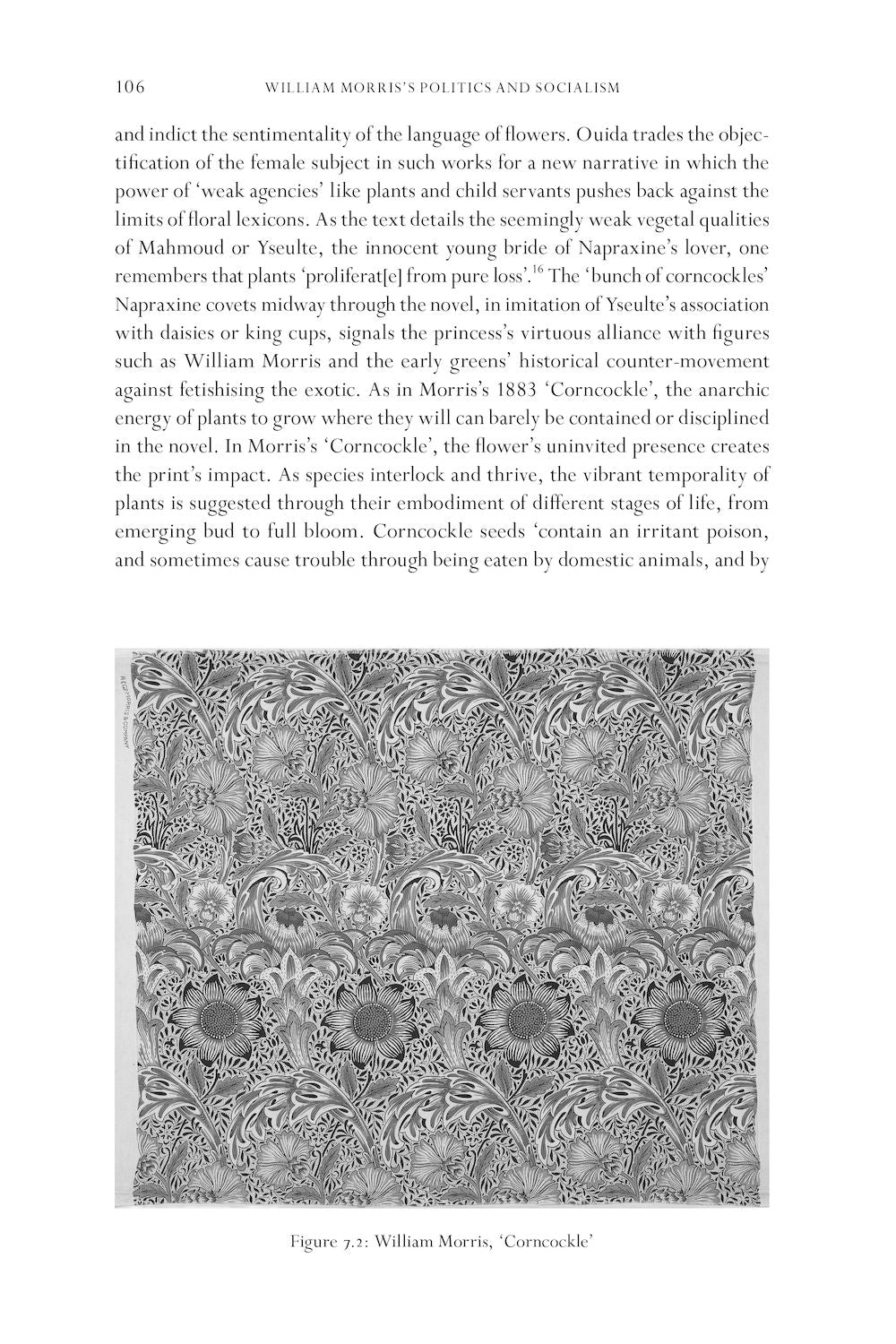
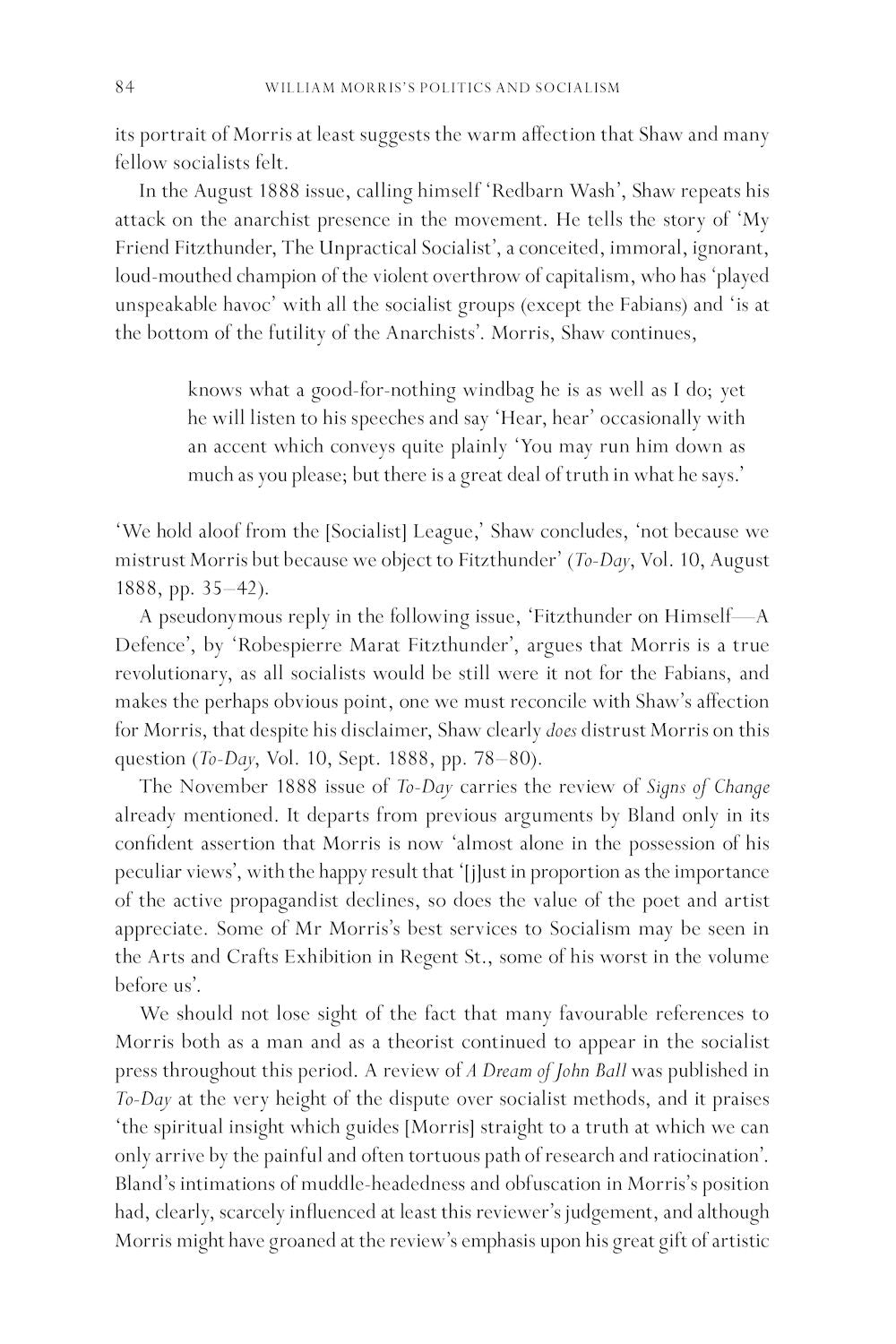
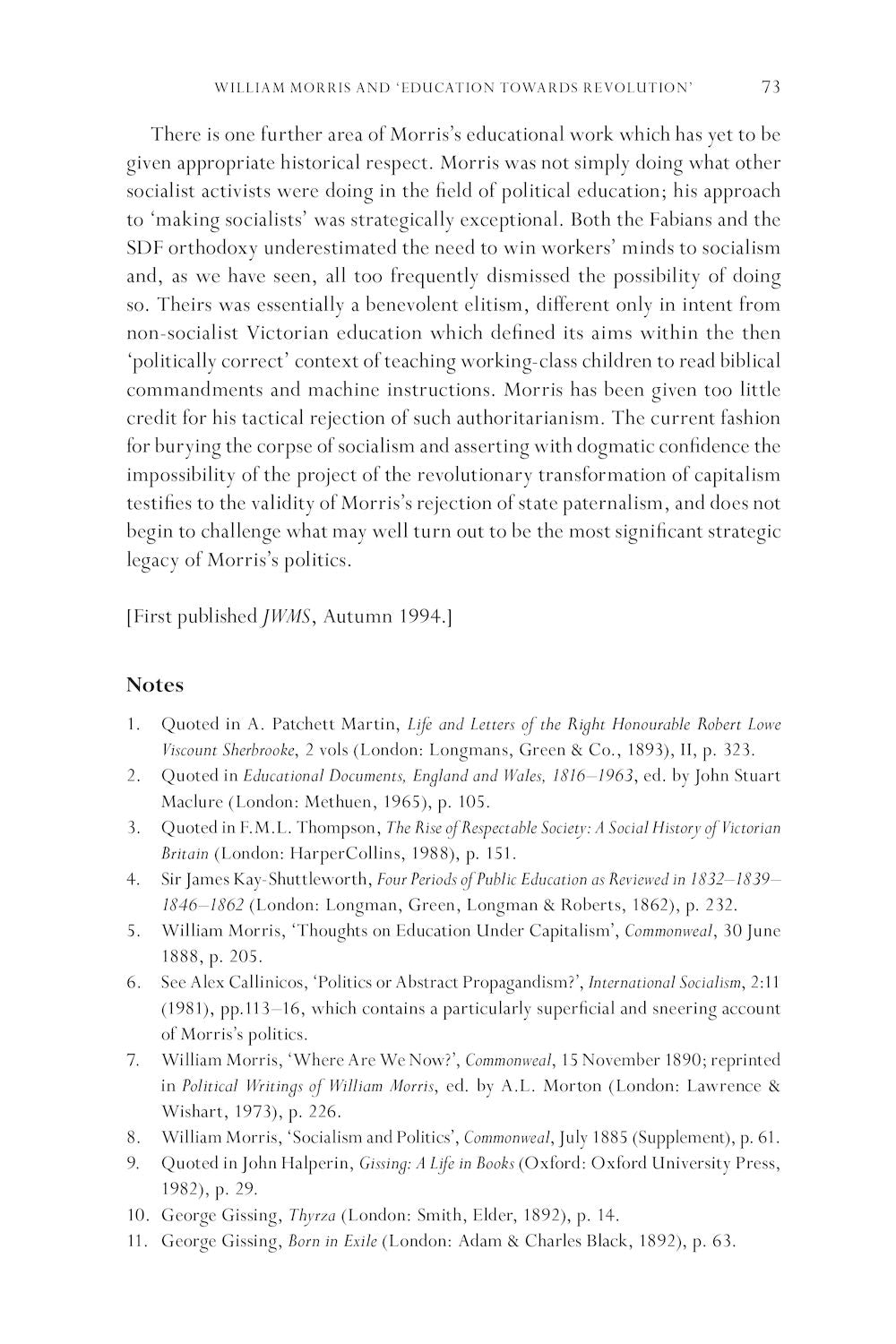
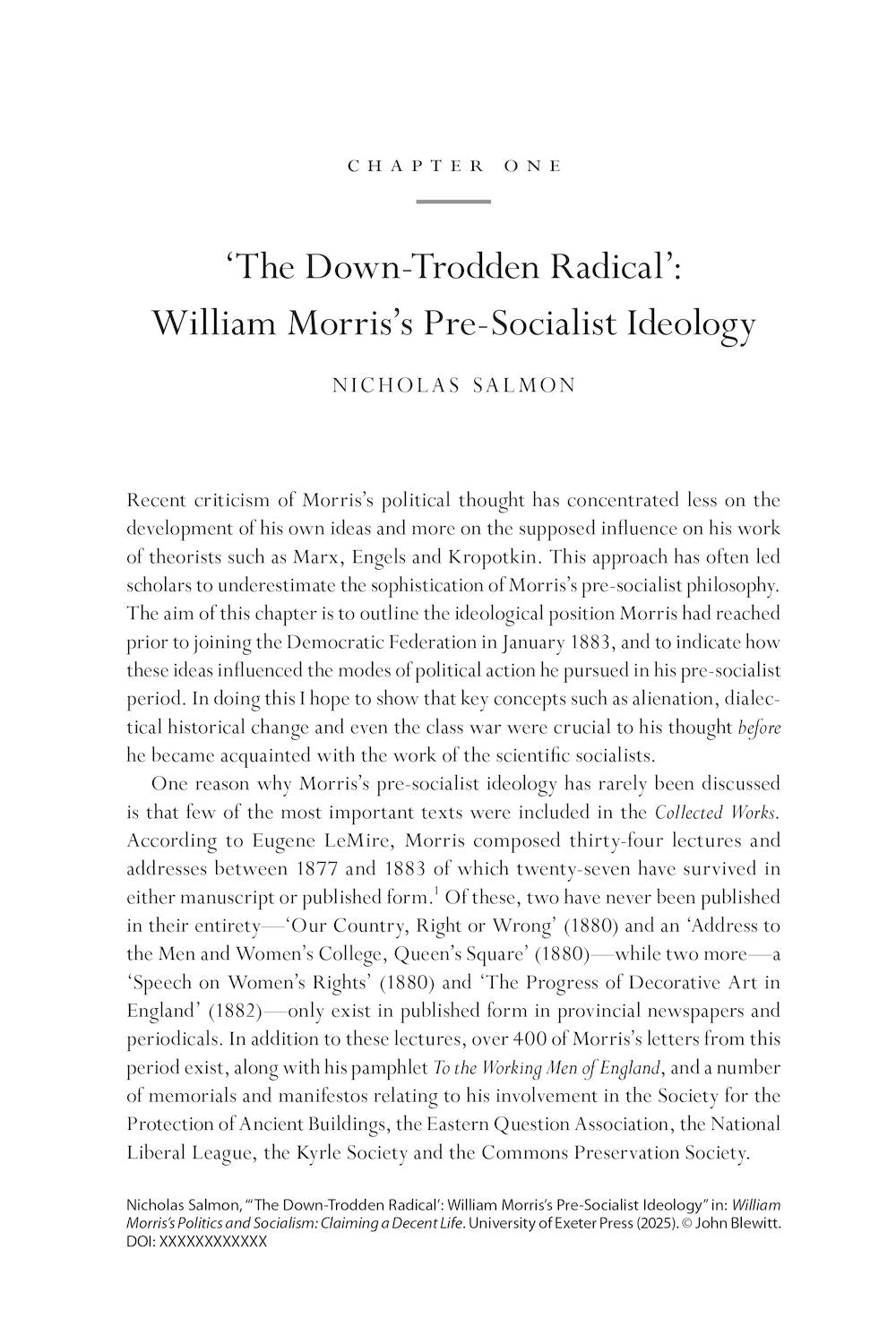
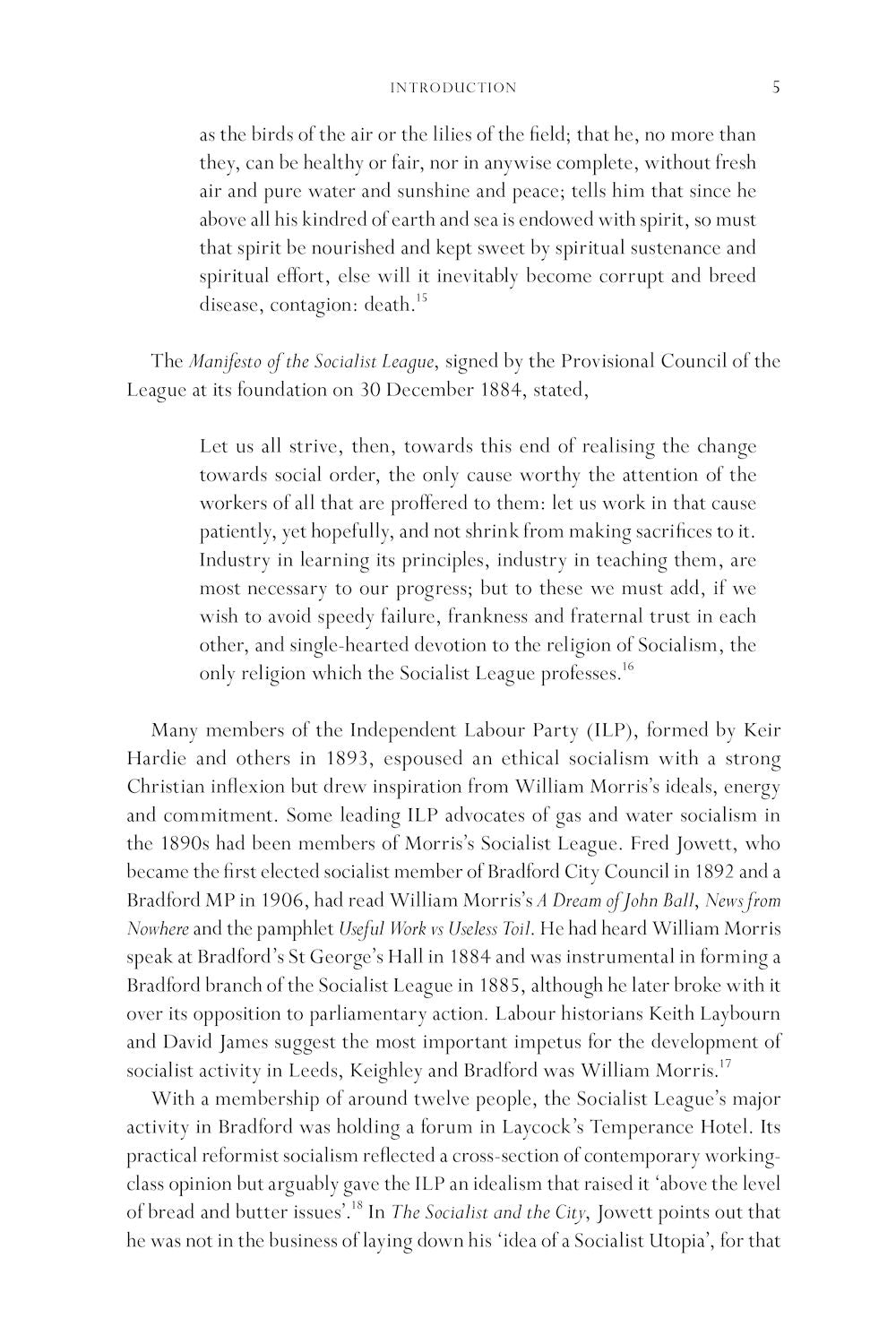
- 310 Pages
Since the early 1960s, the Journal of the William Morris Society (renamed Journal of William Morris Studies in 2005) has attracted a wide range of scholars to consider the life and work of this pivotal figure in Victorian culture. During that time the journal has published nearly 120 articles, exploring all areas of Morris’s social, political and environmental thought as well as his energetic political activism.
The contributions gathered in this volume provide many original insights, as well as unearthing fresh material from the archives. The lifetime trajectory of Morris’s politics and socialism is often discussed in ways that show how it emerges from, interconnects with and informs the many other areas of his work – art, design, literature, poetry, arts and crafts manufacture, fine book publishing and production. There is no other collection of articles of this type, with the range of contributors representing a virtual who’s-who of Morris scholarship. William Morris’s social and political values, his actions, his utopian writings and his libertarian socialism resonate even more widely today than perhaps they did in his own time.
At a moment in history when disillusion and distrust of current politics and politicians has grown significantly, a figure such as Morris offers renewal and hope. This book allows great opportunities to reflect on the culture, context and genealogy of his beliefs while inviting the reader to revisit political possibilities and paths not taken… paths that perhaps should be embarked upon now.
More than a century after his death, William Morris remains best known as a designer. For Morris, however, art was inseparable from politics. You can’t fully appreciate Morris the artist – or Morris the poet, prose writer, translator, printer, environmentalist or preservationist – without understanding his socialism. John Blewitt has collected eighteen of the best essays on Morris’s socialism written over the past four decades. This is an invaluable book for anyone interested in what William Morris can teach us about how to make a better future.
Michael Robertson, Professor Emeritus, The College of New Jersey
John Blewitt has put together an exceptional collection of essays that illuminates the intricate beauty of a largely forgotten form of socialism.
Ryan McIlhenny, Professor of Liberal Arts and Humanities at Shanghai Xing Wei College, author of American Socialist: Laurence Gronlund and the Power behind Revolution
Never was there a more urgent need to remember William Morris’s claim that everyone is entitled to a decent, fulfilling and ‘eager’ life. In an increasingly bewildering and unstable world, this timely and impressive book reminds us of the relevance of Morris’s political thought across the twentieth and twenty-first centuries. Drawn from a diverse and vibrant range of articles from The Journal of the William Morris Society and its successor The Journal of William Morris Studies, this book is testimony to the energy and commitment of those who continue to think, write and talk about Morris, encouraging us never to stop wondering about how we might live, rather than how we live now.
Dr Phillippa Bennett Senior Lecturer in English, University of Northampton and author of Wonderlands: The Last Romances of William Morris
William Morris remains widely admired for his designs, but the socialism that infected and drove those designs is ignored or denied. This began only days after he died but his artistic and political analysis, sometimes one and the same thing, remains directly relevant today. This book provides a wealth of knowledge and analysis, ranging from the environment to gender, all in support of Morris’s concern to see us bring about our emancipation from the shackles of capitalism.
Professor Ian Wall, Chair of The William Morris Society
A truly compelling collection of essays, which brilliantly consider Morris’s place within Victorian political thought but also highlight the relevance of his radical socialism for contemporary debates from urbanism to anti-imperialism to alienation and aesthetics. This is a much needed volume of arresting and significant readings of Morris and his unique contribution to culture and politics.
Dr Tristram Hunt, Director, Victoria and Albert Museum
Drawing from the archive of The Journal of William Morris Studies, John Blewitt's timely selection gathers together an appealing range of essays that showcase the breadth of Morris's commitments, political and otherwise. No mere poet-upholsterer, readers of the volume will gain fresh insight into Morris's revolutionary socialism, his resolute and unapologetic anti-imperialism, his prescient ecological consciousness, and the political networks that sustained him. Taken together, the essays offer a welcome reminder of what Morris's writings might still have to teach us at a time of climate breakdown, resurgent fascism and pervasive political disenchantment.
Dr Owen Holland, author of William Morris’s Utopianism
In a world where work for many is marked by insecurity and anxiety, William Morris stands out as one of the earliest advocates of meaningful work. This timely book offers both new and experienced readers of Morris a comprehensive insight into his philosophy, politics, and activism. Through thoughtful consideration of Morris’s views from the twentieth century, the book also projects a way forward in reclaiming meaningful work that coexists with the society and ecology in which it is situated.
Dr Sudeshna Bhattacharyra, Nottingham University Business School
Introduction John Blewitt
DOI: 10.47788/RQXM5395
1. ‘The Down-Trodden Radical’: William Morris’s Pre-Socialist Ideology Nicholas Salmon
DOI: 10.47788/AQQJ7007
2. Nature and Art: Morris’s Conception of Progress Isolde Karen Herbert
DOI: 10.47788/EHZB1314
3. William Morris’s Egalitarian Perfectionism Christine Sypnowich
DOI: 10.47788/IGLC6184
4. William Morris and ‘Education Towards Revolution’: ‘Making Socialists’ versus ‘Putting Them in Their Place’ Stephen Coleman
DOI: 10.47788/JUQR7335
5. William Morris and the Contemporary Socialist Press Helen Irving
DOI: 10.47788/VWTX3104
6. William Morris and the Socialism of Robert Blatchford Chris Waters
DOI: 10.47788/UJCF7021
7. In Search of Early Green Women: Planting Radicalism after Morris Alicia Carroll
DOI: 10.47788/SPWH9279
8. ‘Morris the Red, Morris the Green’: A Partial Review Patrick O’Sullivan
DOI: 10.47788/FIEA8313
9. William Morris, Commonweal and Imperialism Peter Halton
DOI: 10.47788/VPUK8284
10. Hypocrisy and Cant and Vicarious Ferocity Jan Marsh
DOI: 10.47788/JNLA5145
11. Morris on Tyne: A Sunday Lecture John Stirling
DOI: 10.47788/UOSR6852
12. Versions of the Past, Problems of the Present, Hopes for the Future: Morris and Others Rewrite the Peasants’ Revolt Julia Courtney
DOI: 10.47788/FFIR5886
13. Liberation Ecologies, circa 1871 Elizabeth Carolyn Miller
DOI: 10.47788/AIGE7326
14. Morris and the Homeric Epic: Translating The Odyssey into Socialist Praxis Michelle Weinroth
DOI: 10.47788/ALZF6742
15. William Morris’s Romantic Revolutionary Ideal: Nature, Labour and Gender in News from Nowhere John Bellamy Foster
DOI: 10.47788/VLFM7685
16. More, Morris, Utopia… and Us Ruth Levitas
DOI: 10.47788/DOTA8527
17. Time and Utopia: The Gap Between Morris and Bax Ruth Kinna
DOI: 10.47788/ATFX3683
18. William Morris: The Myth of the Fall Anna Vaninskaya
DOI: 10.47788/JRNP8318
- 310 Pages
































